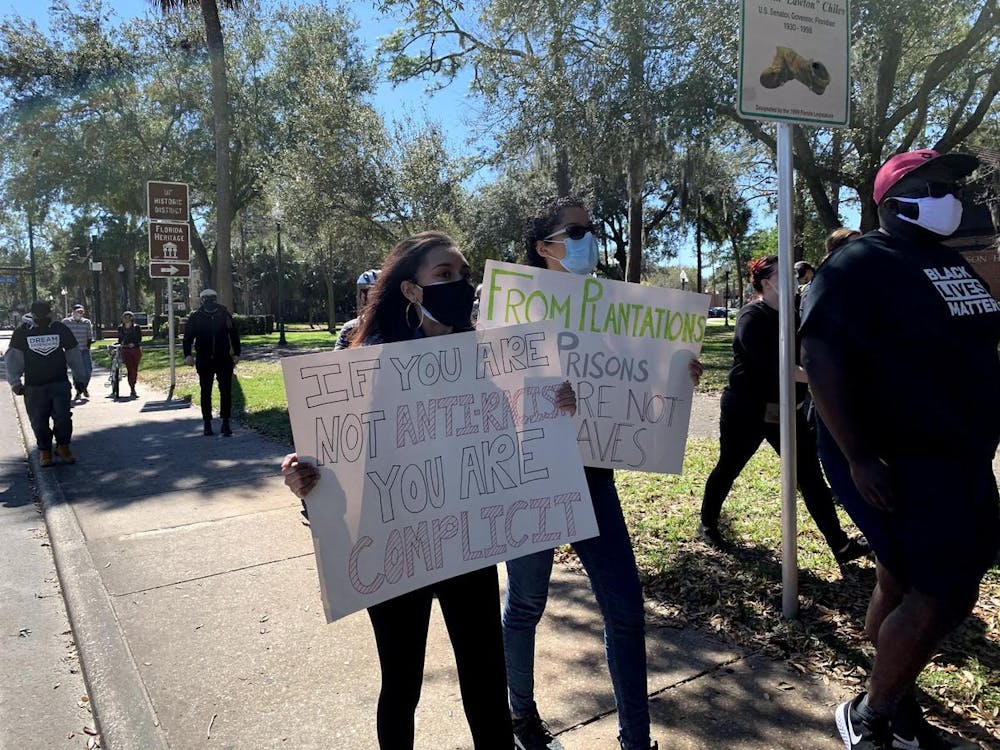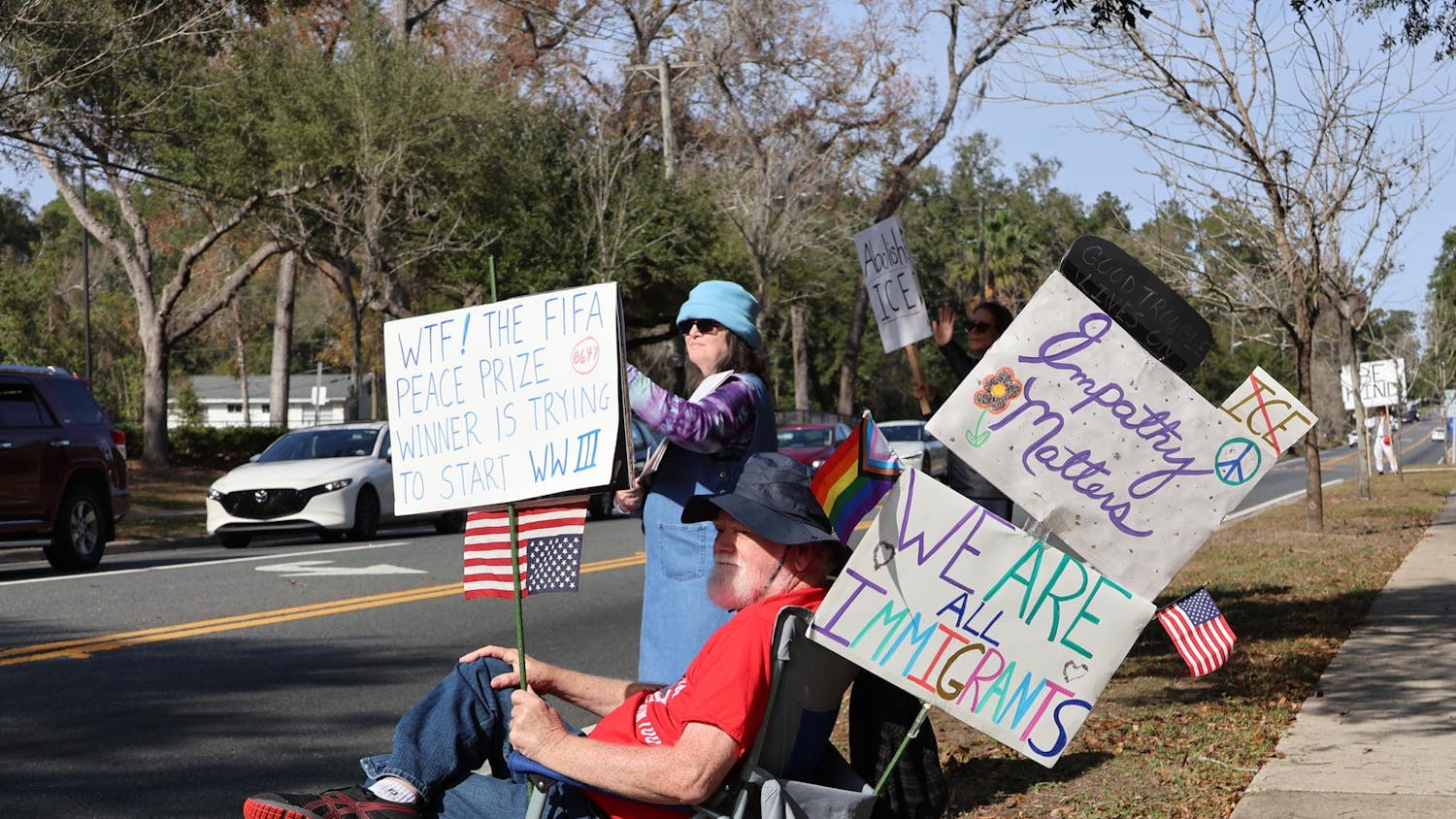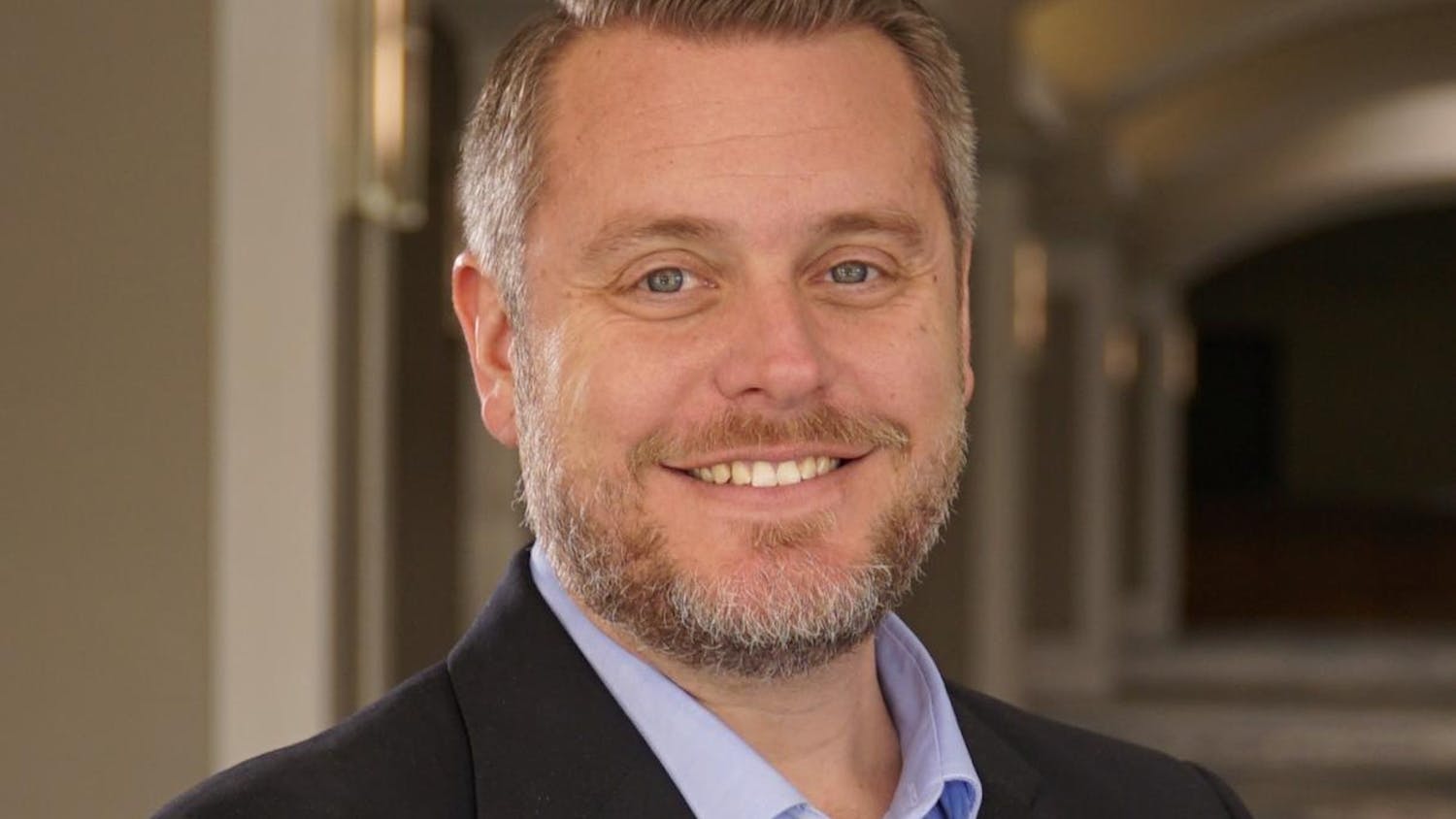Standing halfway up the steps of Tigert Hall in a black dress, Ebony Love spoke into a microphone about the hardships Black students at UF have faced since George H. Starke Jr., the first Black student to attend the university in 1958.
“The Black population of the University of Florida is decreasing, and nobody is saying anything,” Love, a 24-year-old UF law student, said. “How many Black men are at the University of Florida? The numbers speak volumes.”
On Saturday, about 80 UF students gathered outside the Reitz Union and walked to Prayers By Faith Family Ministries, the original location of Gainesville’s NAACP chapter, in honor of Gainesville’s Black history. During the march, organized by GoDDsville Dream Defenders and UF Black Student Union’s Black History Month Cabinet, activists spoke on the importance of understanding the content surrounding the Black community’s demands for change.
The march began outside Reitz Union, where members of the two groups called for a name change of the building named after J. Wayne Reitz, the fifth president of the university who stalled the integration of Black students into UF.
Marchers dressed in Black shirts that read “Black Lives Matter” and “Arabs for Black Power,” loudly chanted: “Hey, Ho! The Reitz has got to go!” Some lifted up homemade signs as they walked, reading “silence is violence” and “if you are not anti-racist, you are complicit.”
The second stop in the three-and-a-half-hour-long march was outside Tigert Hall, where in 1971, three groups of students marched into then president Stephen O’Connell’s office with demands for more Black faculty to be hired and students to be admitted to the university. This led to the arrest of 66 students.
Standing outside the building, Love talked about UF's complicated history with the Black community. She said Virgil Hawkins, who fought Florida’s Jim Crow laws, was denied admission into UF because he was Black. Even after appealing to the Equal Protection Clause, which compels a state to govern impartially by not drawing irrelevant distinctions between individuals, he and five other African Americans were told that they may attend a recently segregated law school — FAMU.
“Who was sitting on the Supreme Court when he was denied?” Love asked. “Stephen. C. O’Connell. Who knows who that is?”
Karine Dieuvil, a 20-year-old UF BFA Acting junior, rallied the group to both cheers and criticism from onlookers at the third stop on the march, the university crest located on the corner of University Avenue and 13th Street.
“We need people showing out,” Dieuvil said. “It’s not just the Black folk, it’s not just the people around the block, it’s your friends, it’s your family, it’s the people down the street that you see all the time, but you never invited to an event before.”
As she spoke, a white truck drove by and yelled, “F*** Black Lives Matter.”
While standing in front of the Wilhelmina Johnson Resource Center, a community center that focuses on education and art, Nkwanda Jah said the neighborhoods off of Northwest 68th Avenue and Northwest 10th Street in East Gainesville are facing gentrification, taking away Black homes and Black culture. She explained how the community used to be a hotspot for businesses.
“This was a self-sustaining neighborhood,” Jah, an executive director for the Cultural Arts Coalition, which is based at the center, said. “This community is in deep trouble with gentrification.”
Ending at the Prayers By Faith Family Ministries located at 429 NW Fourth St., the Rev. Gerard Duncan, poet E. Stanley Richardson and artist Turbado Marabou shared their admiration for the younger generations' continued activism.
They talked about the similarities between the students' actions that day and the marches from the past, revealing the irony that the march ended where Gainesville's NAACP meetings used to be held.
“Even though we have come such a long way, there is still so much injustice that has not been resolved,” Richardson said.
This article has been updated to reflect that the Rev. Gerard Duncan attended the event and that protestors walked to Prayers By Faith Family Ministries located at 429 NW Fourth St. The Alligator initially reported otherwise.
Isabella Douglas is a contributing writer for The Alligator. Follow her on Twitter @Ad_Scribendum.

Isabella Douglas is a fourth-year journalism major and the Fall 2023 editor-in-chief for The Alligator. She has previously worked as the digital managing editor, metro editor, criminal justice reporter and as a news assistant. When she isn't reporting, she can be found reorganizing her bookshelf and adding books to her ever-growing TBR.






